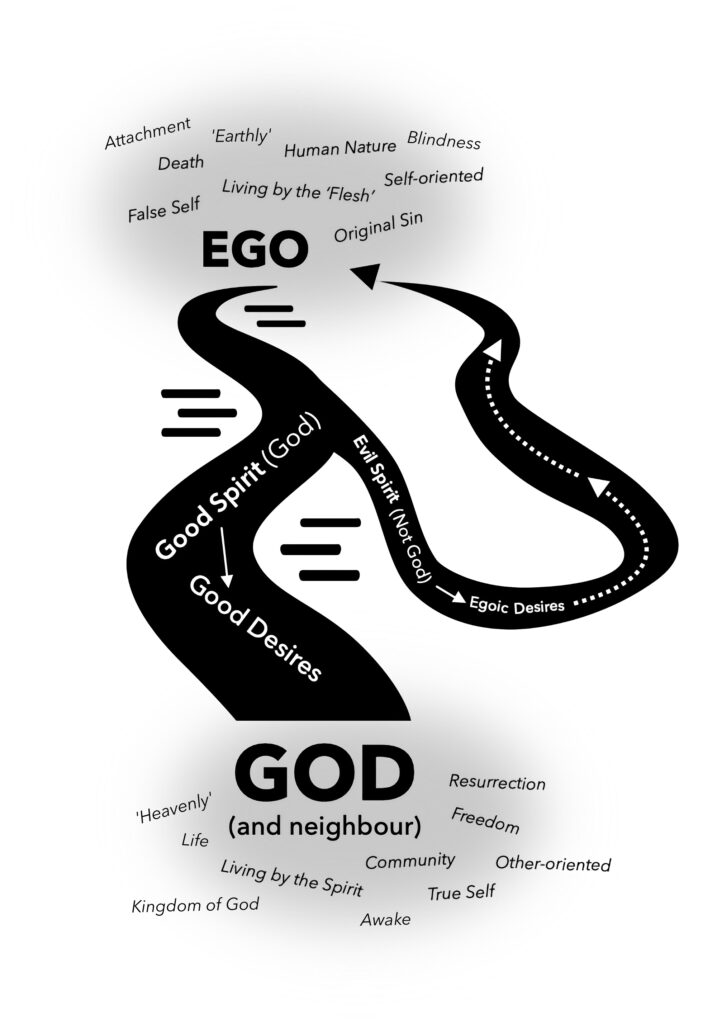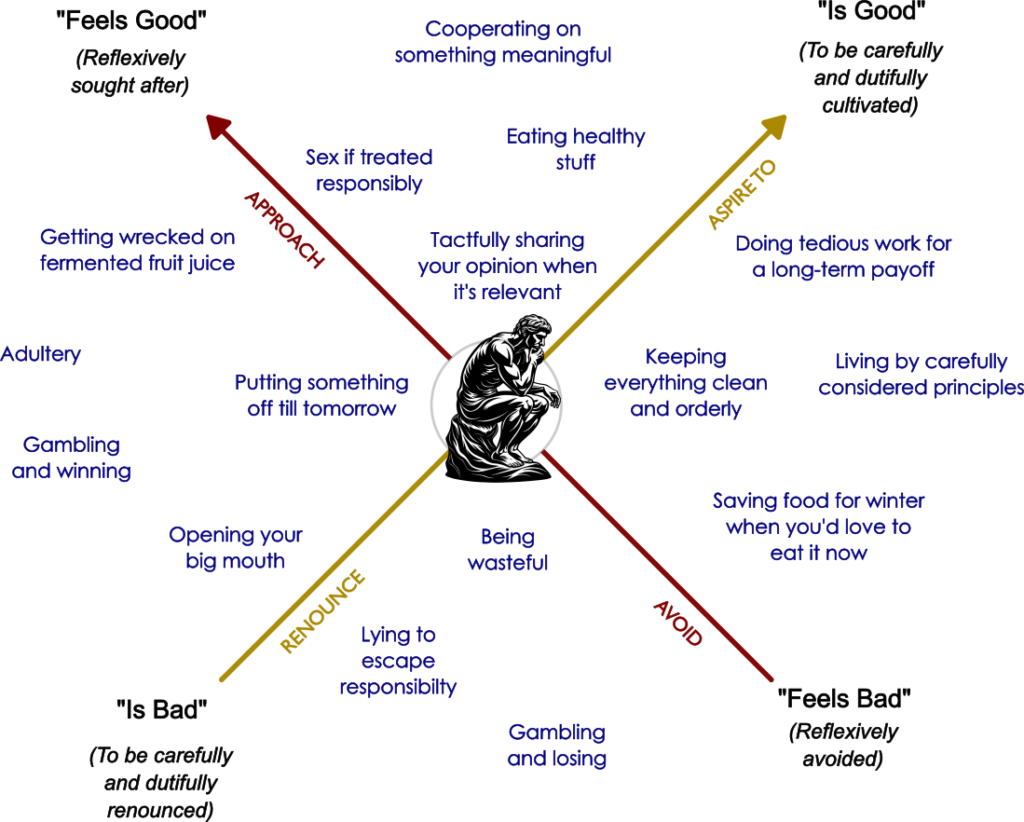What is human civilisation about? This is the question posed by David Cain, author of Raptitude, a blog about “getting better at being human.” His secular examination of this question intersects well with Ignatian spirituality’s understanding of this question. Cain posits that civilisation is all about humans’ struggle for self-control and morality. He notes that human beings are unique in their ability to contemplate hypothetical scenarios and multiple possible futures. This allows us to consider the consequences of our actions beyond immediate instinctual responses.
Christianity might agree with that. Ignatius would also agree that life is a series of responses. But they are responses in the context of a relationship with God and neighbour, making many of our responses a question of morality. Ignatius asks what leads us to the “greater glory of God”, looking beyond immediate gratification to a higher purpose. David Cain sees this delay of gratification as unique to humans who can understand what truly is good. What is good goes beyond immediate feelings and considers what is truly beneficial in the long term. While Christianity has historically taken this “goodness” to mean an admission to heaven after we die, a more contemporary understanding sees this authentic goodness not for our own salvation per se, but for the flourishing of all creation: humans, animals, and earth.
Cain acknowledges the necessity of sacrifice: our ability to choose actions that might be uncomfortable or unpleasant in the short term but lead to better outcomes. This is Ignatian detachment, the ability to let go of something for the sake of the greater good.
 Navigating the Path to Goodness
Navigating the Path to Goodness
Cain presents an illustration of how humans can move beyond a trajectory of simply moving toward what feels good to what is good. It reminds me of an illustration I created to represent the spiritual life from an Ignatian perspective. We’re called to move beyond the ego toward the goodness of God. This is the struggle of civilisation. Cain says, “Some things Feel Good and are Good, but quite often doing an act of Good is difficult and counter-instinctual.”
The article frames the question of what we should do or refrain from doing as the central theme of human history and discourse. “What is this all-seeing force,” Cain asks, “behind everything that seemingly rewards sacrifice and discipline, and punishes selfishness and cowardice?” As Christians, we would say God. It’s as if a moral law is written on our hearts (see Jer. 31:33).
Cain mentions the Bible as a moral compass, presenting stories of those who listen or don’t listen to that “force”. He even describes this force as “a light you can see, or feel, and therefore navigate by, even through a driving sandstorm.” That makes me think about the movements of consolation and the good spirit, guiding us on that spiritual continuum toward The Good of God. And false consolation is the “Feels Good” side of Cain’s diagram, a place where the evil spirit, guised as good, attempts to lead us to. There is complexity here because sometimes the “Is Good” and the “Feels Good” overlap. Ignatius spoke a great deal about joy and love and peace coming from God. This is often where we find those deep desires Ignatius says we have within us.
Tools for Discernment
Practices like the Examen and imaginative prayer help us to discern the feelings, responses, and future paths before us. As the article says, we do have this amazing ability to “imagine circumstances that don’t yet exist” and to exercise self-control for the sake of a greater good.
So there you have it. Secular or religious, what we should do or refrain from doing is the central theme of human history and discourse. Ignatian spirituality offers tools for this human endeavour, but it’s not alone in recognizing the importance of this struggle. As we navigate our own paths towards goodness, we can draw wisdom from both spiritual and secular sources. Whether through Ignatian practices like the Examen or through self-reflection, the key is to remain engaged in this process of ongoing discernment.
How do you navigate your own moral compass? What practices help you move towards what ‘Is Good’ rather than just what ‘Feels Good’?
Related posts:
- Time Rebels: Ignatian Discernment and Our Future Selves
- Pope Francis on Discernment
- The 5 Keys of Discernment
Sign up to our free 5-part email series on Ignatian discernment.
Listen to the podcast version of this post…











Thought provoking as ever Andy! Well done. God bless you and your family